We explain to you what the Bolsheviks and Mensheviks were and who their leaders were. Also, what were their characteristics and ideologies.
What were the Bolsheviks and Mensheviks?
In the framework of the Russian Revolution that ended in 1917 the Tsarist Empire and the interim government that emerged later, thus establishing a Soviet communist regime called the Russian Soviet Federative Socialist Republic, two important political and social groupings , known as the Bolsheviks , stood out. and the Mensheviks.
Both groups were of communist affiliation , opposed to the government of Tsar Nicholas II since the beginning of the century , which is why they had taken part in the protests and strikes against it that began in the so-called Revolution of 1905, defeated by the imperial forces. Since then they have organized as a political party and in 1912 they distanced themselves from each other, showing ideological differences regarding the ideal way of leading the nation towards a socialist state.
The events of the October Revolution that finally overthrew the monarchy brought both groups to power , but to the frank advantage of the Bolsheviks, who were opposed by the Mensheviks until 1921, when they were outlawed and expelled from the All-Russian Central Executive Committee. having to flee into exile or join the single Bolshevik party.
Meaning of the terms Bolshevik and Menshevik
The terms Bolshevik and Menshevik mean in Russian, respectively, "member of the majority" and "member of the minority . "
Such a nomenclature comes from the distribution of militants in the 1903 vote in the second congress of the Russian Social Democratic Workers' Party (POSDR), of which the Bolsheviks were the radicalized faction and the Mensheviks the moderate.
Leaders of both factions
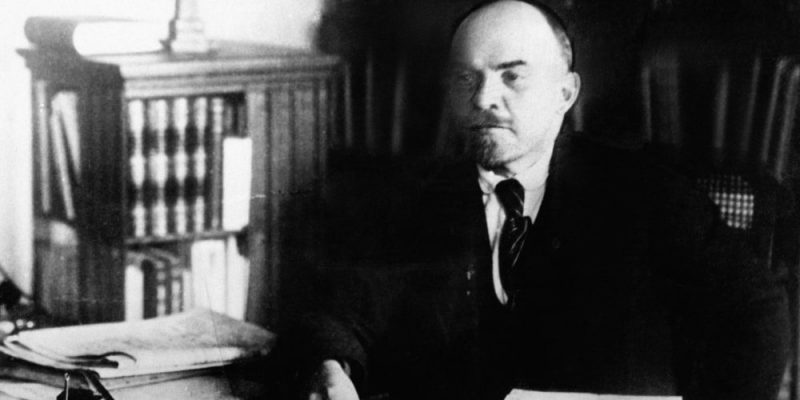
The Bolsheviks were aligned with Vladimir Ilyich Ulyanov , known as "Lenin", who would be the great ideologue of Soviet communism, a figure extolled and defended by followers like Stalin, against moderate alternatives like Lev Trotsky.
The Mensheviks, on the other hand, had a diverse leadership, since among themselves there was no militant union of the Bolsheviks, but a disparity of positions, differences and debates.
However, its main leaders were Yuli Martóv, Pável Axelrod (former Leninist) and Alexandr Martýnov .
Bolshevik ideology
The Bolsheviks embraced Lenin's thesis that posited the need for a dictatorship of the proletariat, implanted through violent revolution, to achieve socialism .
This revolution was sustained by the alliance of the working class with the peasantry, whose joint force could overthrow the Tsar, destroy the landlords and impede the management of the bourgeoisie .
For this Lenin proposed a "democratic centralism" , which would assume full power in a single ruling class, the proletariat . To belong to said party it would be necessary to first belong to an organization attached to it.
Menshevik ideology
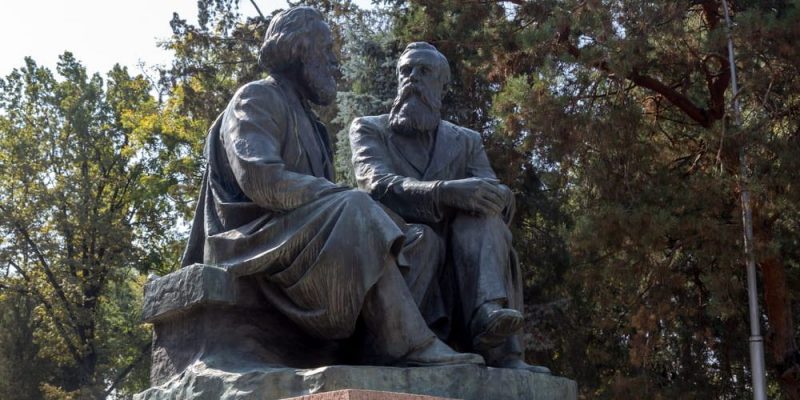
The Mensheviks, on the other hand, embraced a more broad, diverse party model, far removed from the single party proposed by Lenin.
His ideal was to achieve social democracy first , to establish a representative system that would modernize agrarian Russia and then, once a high level of industrialization had been reached , to establish socialism.
This thesis, closer to the theories of Karl Marx , was more similar to the models of German workers' parties, with a less rigid and authoritarian structure than that proposed by Lenin.
Differences between Bolsheviks and Mensheviks
The central difference between the two factions had to do with their ideological approach to the Communist Revolution, since the Bolsheviks were in favor of a radical opposition to imperial tsarism and bourgeois democracy, launching headlong into the establishment of the socialist regime, while the More moderate Mensheviks advocated the overthrow of the Tsar and the development of a bourgeois revolution that would modernize the Russian nation through capitalism , thus laying the necessary industrial bases to later achieve socialism.
Furthermore, the Bolsheviks had greater support from the peasantry, to whom they promised a new rural order imposed by the single party; while the Mensheviks showed a preference for the urban , for the democratic exercise of the vote and an ethical concern that prevented them from justifying the arrival to socialism by any means.
Withdrawal after the 1905 Revolution
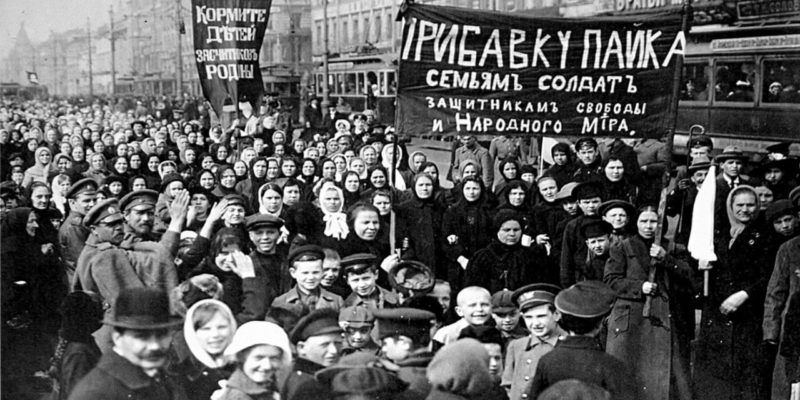
If there were already ideological and grassroots differences between Bolsheviks and Mensheviks, their participation in the failed Revolution of 1905 confirmed the distance that separated them.
While the former embraced an armed insurrectional offensive against the monarchy and against the instituted social order, the Mensheviks refused to participate in extremist and conspiratorial actions , fearing that this would only justify the repression of the party and alienate them from the middle classes, which they saw as a necessary ally against tsarism.
This confirmed to the Bolsheviks their belief in the need for a single centralized party , embracing the peasants and workers rather than the middle class.
Expulsion of the Mensheviks from the party
After some attempts at reconciliation in 1907 and 1912, the split between the two factions was total. They accused each other of wanting to dissolve the Party, and eventually the Bolsheviks led by Lenin expelled their opponents from the party and assimilated most of the Menshevik organizations in Russia. This meant a further radicalization of the communist sectors in the years before the First World War .
Role in the provisional government of 1917
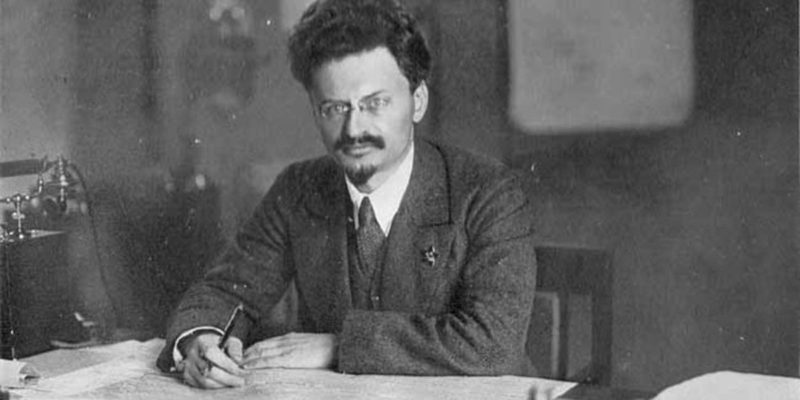
After the February Revolution of 1917, which caused the fall of tsarism and the implantation of a provisional government, of a liberal court, led by Georgi Lvov.
This constitutional and legitimate government disputed the recognition of the working masses with the Petrograd Soviet , a workers', military and peasant organization that emerged in the revolutionary uprisings, and to which the proletarian sectors of society were more loyal .
Said Soviet would be controlled by the Bolsheviks , under the figure of Trotsky, that same year, while the Mensheviks allied themselves with the Social Revolutionaries and the Liberals in the government.
This built a situation of dual power that generated tensions and prevented a rapid political reorganization and solution of the problems inherited from tsarism.
Decline of Menshevism
The failure of the Mensheviks to obtain many of the labor demands that the establishment of a liberal democracy demanded, added to the failed military coup of counterrevolutionary sectors led by Kornilov, and the unpopularity generated by the Russian participation in the First World War, sentenced the decline of the Menshevik party, giving ground to the Bolsheviks.
The October Revolution
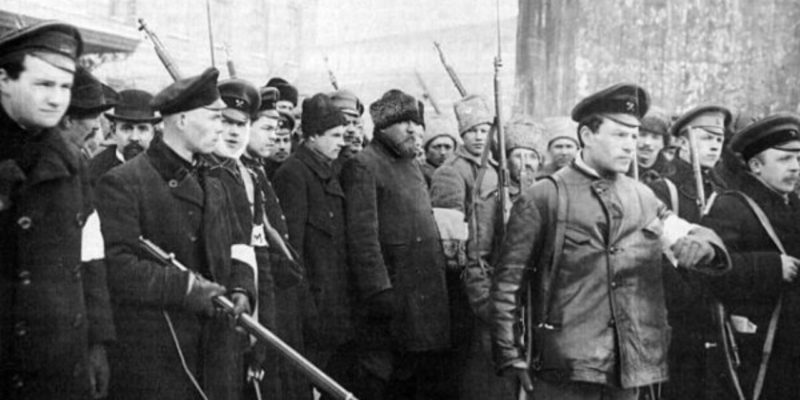
The Bolsheviks founded the Petrograd Military Revolutionary Committee and gradually assumed the functions of the Provisional Government, as a plan was implemented to assume the full power commanded by Trotsky.
Thus, the II Congress of the Soviets was held, during which the majority of Bolshevik forces remained latent, and the weakness of the rest of Menshevism. While the congress was taking place, a coup was carried out by Soviet forces.
The congress approved their motions when the Mensheviks withdrew in protest at the actions of the Bolshevik sector, and thus the Petrograd Soviet assumed full power instead of the Party, starting a Civil War that is known as the October Revolution. and that would culminate in the establishment of a Bolshevik Soviet regime in the Russian nation.
The above content published at Collaborative Research Group is for informational and educational purposes only and has been developed by referring reliable sources and recommendations from technology experts. We do not have any contact with official entities nor do we intend to replace the information that they emit.
MA student of the TransAtlantic Masters program at UNC-Chapel Hill. Political Science with a focus on European Studies. Expressed ideas are open to revision. He not only covers Technical articles but also has skills in the fields of SEO, graphics, web development and coding. .
Leave a reply
Your email address will not be published. Required fields are marked *Recent post

Sport: What Is It, Types, Risks, Features, Characteristics and Examples

Dogs: Emergence, Features, Characteristics, Feeding and Breeds

Story: Definition, Elements, Structure, Features and Characteristics

